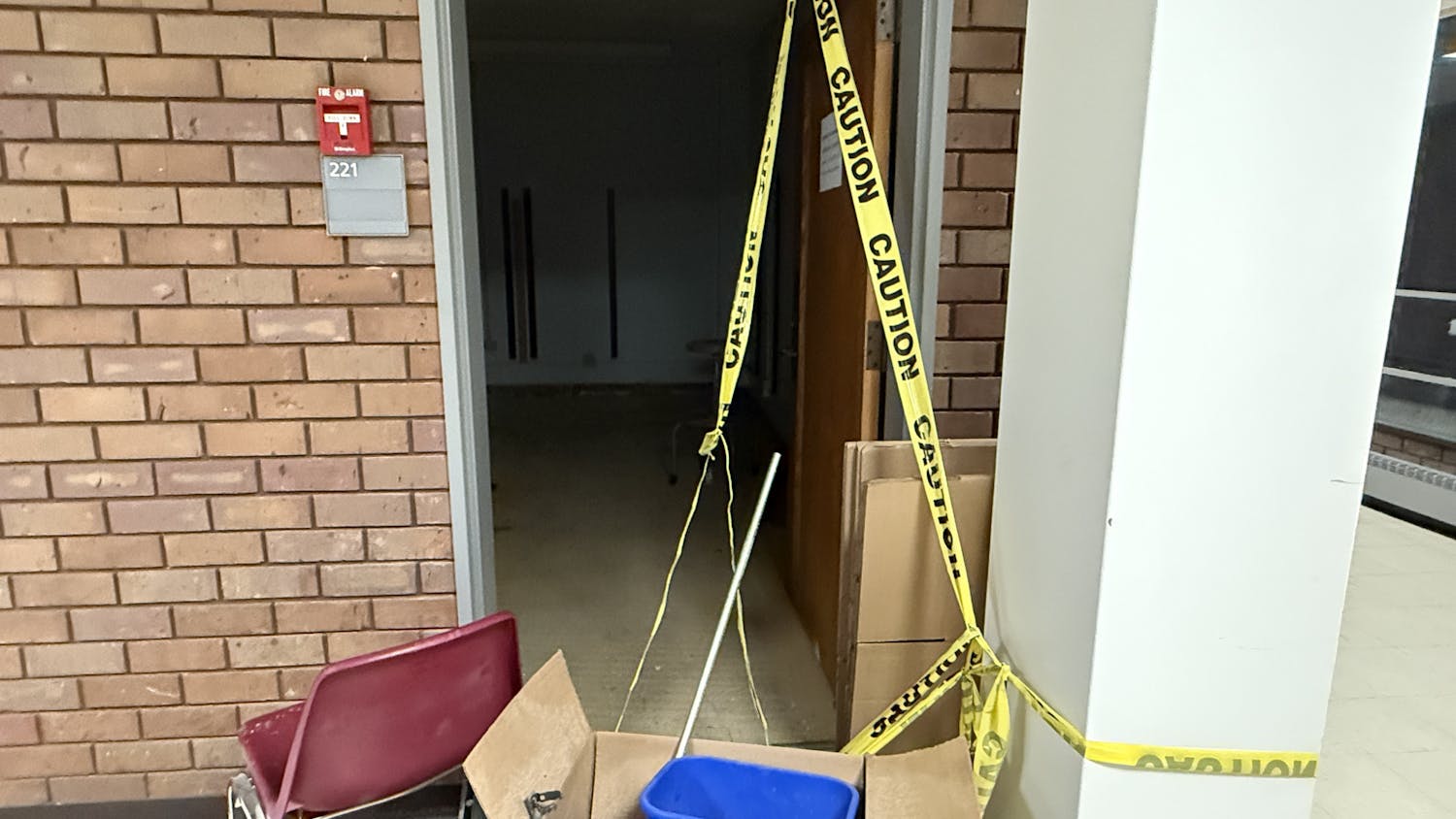Faculty Senator Kenneth Dauber wants the University at Buffalo Foundation (UBF), a private organization that manages the millions of dollars donated to the university, to make its budget public - and he's looking to the Faculty Senate for support.
But he is going to have to wait to find out if he has it; the motion Dauber made was deferred to the next meeting. A trend of low attendance has followed the Faculty Senate for years, leaving the body unable to have quorum and vote on motions.
Tuesday afternoon's meeting in the Center for Tomorrow was no different. Dauber, an English professor, made a motion requesting the Faculty Senate ask UB President Satish Tripathi and UB administration to make UBF and its associated foundations' budget public.
Dauber stood in front of the crowd, which included 37 senators - 14 short of what's required for the body to vote - and read from his motion statement. He said, according to the Senate's bylaws, it is the group's responsibility to have oversight on the university's budget and make recommendations on "funding priorities." UBF holds a "significant" portion of the university's funds, Dauber added.
Last Senate meeting, UBF director Edward Schneider held a Q&A regarding the Foundation and said its "size" is about $1 billion.
"[UBF], because it has been constituted as a 'private' corporation, is not subject to the Freedom of Information Law (FOIL) and about which, accordingly, we are blind," Dauber read aloud.
Unlike state institutions - which must provide requested information to the public - UBF's records and meetings are private. Foundations like UB's are also present at other SUNY universities.
Some faculty and community members have voiced concern with a private organization handling money for a public university.
Dauber said, within his motion statement, that the Senate should - "in the spirit of collegiality" and transparency - fulfill its responsibilities and request UB make the private organization's budget available "as if it were subject to FOIL."
Artvoice, a Buffalo newsweekly, once took the Foundation to court in an attempt to get financial data and make the private organization subject to FOIL. The publication lost the case, as it reported in an investigative piece in March 2011.
With the inability to vote on the motion, present senators participated in an open discussion about why some members of the Senate were pushing for the measure.
Martha McCluskey, faculty senator and law professor, expressed how important she felt it was that faculty be able to look at what UBF money is being spent on.
"Many of us in our departments are faced with dramatic cutbacks in programs, services, hiring, resources - a lot of trouble that's affecting students, affecting our work," McCluskey said. "It is an issue."
She explained it isn't so much important where money came from, but where money is being spent. She also noted concern over which procedures are followed to determine the hundreds of university employees who receive supplemental salaries - in addition to their state salaries - from UBF, which, in some cases, are over $100,000.
Some senators questioned what the opposition had to say about the motion, but no senator readily spoke against the motion.
"As Chair, I'm not going to say what my own position is," Senate Chair Ezra Zubrow said in response. "But I do think I have heard that at least one of the con positions is, simply, that it is a private foundation and operates under the laws of a private foundation. What we are asking it to do is become more transparent than the rules of a private foundation would be."
Amidst the discussion, it was decided a document with "pro" and "con" viewpoints regarding Duaber's motion would be given to senators before their next meeting, where it may or may not be voted upon - depending on attendance.
If there is still no quorum at that meeting, the motion could either go to the Faculty Senate Executive Committee or be held again until the next meeting.
There are about 100 senators - 50 percent plus one is necessary to have a vote. But the number of senators could change, as those with two unexcused absences may be dismissed and their vacancy would not be part of the quorum count.
Tuesday marked the second Senate meeting of the academic year. The next meeting will be on Dec. 3 at 3 p.m. in the Center for Tomorrow.
email: news@ubspectrum.com





